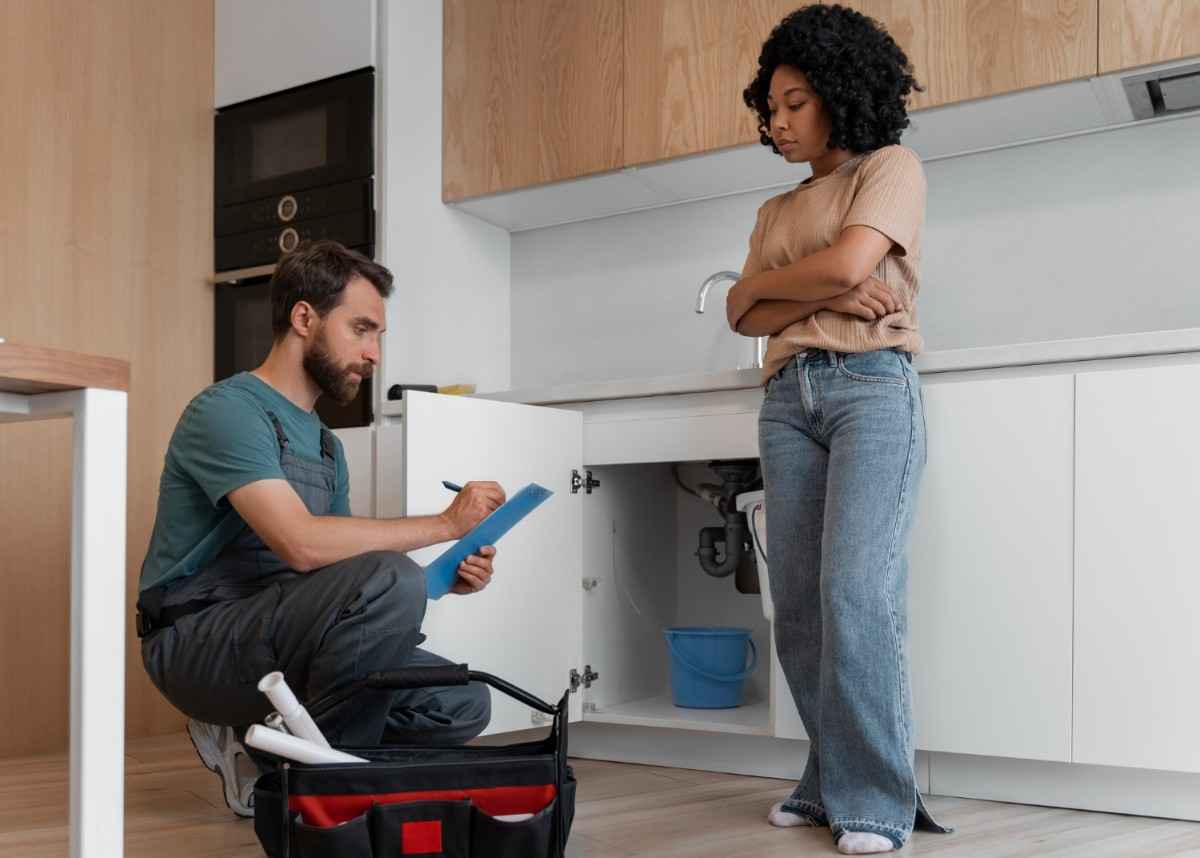Rodents may be small, but they have the potential to cause big problems. For property managers, these pests are more than just a nuisance—they’re a serious risk to the property, the residents, and the bottom line.
Rodents can damage the structure of a building, create health hazards, and even harm the reputation of your apartments. Let’s take a closer look at the various ways rodents can cause harm and why staying ahead of the problem is essential.
Structural Damage: Chewing and Gnawing
Rodents have teeth that never stop growing, so they’re always gnawing on something to wear them down. Unfortunately, your property often becomes their chew toy. Wood, drywall, and even concrete aren’t safe from their teeth.
For property managers, this means that walls, floors, and ceilings can be at risk. Imagine finding out that rats have chewed through floorboards, leaving them weak or unstable. These types of repairs aren’t just inconvenient—they’re expensive.
What’s worse, rodents don’t stop at visible surfaces. They’ll burrow into hard-to-reach areas, causing damage behind walls or under floors where you might not notice until it’s too late.
Electrical Problems and Fire Risks
One of the most dangerous habits of rodents is their love for chewing on wires. To them, the protective coating around electrical wires is just another snack. Unfortunately, their chewing can expose live wires and create serious hazards.
When wires are damaged, they can short-circuit or spark, leading to costly repairs. In the worst cases, these sparks can cause fires. Many electrical fires are traced back to rodent damage, making this an issue no property manager can afford to overlook.
If a fire breaks out due to rodent activity, it’s not just the repair costs you’ll need to worry about. There’s also the risk of injury to residents, potential lawsuits, and damage to your property’s reputation.
HVAC Systems: A Hidden Target
Rodents are experts at finding warm, hidden spaces to nest, and your HVAC system is an ideal spot. Ductwork, vents, and filters are common areas where rodents settle in.
This creates several problems. First, their chewing can tear ducts or block airflow, reducing the system’s efficiency. A less efficient HVAC system means higher energy costs. Second, rodents leave behind droppings, urine, and nesting materials, which can contaminate the air circulating through your property. Poor air quality isn’t just unpleasant—it’s a health risk for your residents.
Over time, these issues can lead to frequent maintenance needs or even complete system replacements, further driving up costs.
Plumbing Issues and Leaks
Rodents don’t just chew on wood and wires—they’ll also target pipes. Plastic, rubber, and even metal pipes can fall victim to their relentless gnawing.
When a pipe is damaged, water leaks are almost inevitable. Leaks lead to water damage, mold growth, and increased water bills. The longer the problem goes unnoticed, the worse it gets. For property managers, this means more time, money, and effort spent on repairs.
In apartments with older plumbing systems, the risk is even higher. Rodents can take advantage of worn-out materials, turning small vulnerabilities into major problems.
Contamination and Health Risks
One of the most alarming issues with rodents is the threat they pose to health and safety. Rodents carry diseases like hantavirus, leptospirosis, and salmonella, which can spread through direct contact or through their droppings and urine.
Even if residents don’t come into direct contact with rodents, the contamination can spread to food, countertops, and other surfaces. This creates unsanitary living conditions, which residents are quick to notice—and complain about.
In addition to diseases, rodents often bring along fleas, ticks, and mites. These secondary pests can infest the property, making the problem even more difficult (and costly) to control.
Property Damage in Storage Areas
Storage spaces, whether in individual units or shared areas, are another favorite spot for rodents. Residents’ belongings stored in basements, closets, or garages become prime targets. Rodents shred paper, fabric, and cardboard to make nests, often ruining sentimental or valuable items in the process.
When residents discover their belongings have been damaged by pests, it’s easy for frustration to turn into complaints. They may hold property management accountable, leading to tension or even requests for compensation.
Food Supply and Attraction
Rodents are opportunistic feeders, which means they’ll eat almost anything they can find. In shared spaces like garbage rooms or kitchens, food waste becomes an easy target.
Left unchecked, this can encourage rodents to stick around and invite their friends. As their numbers grow, so do the problems. Trash scattered by rodents not only looks bad but also attracts more pests, creating a cycle that’s hard to break.
Secondary Damage from Other Pests
Where there are rodents, other pests often follow. Fleas, mites, and ticks are commonly carried by rats and mice. These pests can spread throughout the property, creating even more issues for property managers and residents.
Additionally, dead rodents can attract scavengers like flies, beetles, or even larger animals. If a rodent dies in a wall or crawl space, it can lead to foul odors and more pests. Cleaning up these situations requires time, effort, and professional help, adding to the overall cost of dealing with rodents.
Vacant Units: A Hidden Risk
Vacant units are especially vulnerable to rodent infestations. Without regular activity to deter them, rodents have free rein to chew, nest, and contaminate these spaces.
By the time a property manager or maintenance team discovers the damage, it may be extensive. Damaged walls, gnawed carpets, and rodent droppings can make a vacant unit difficult to rent out without costly repairs and deep cleaning.
Regular inspections of vacant units can help catch these problems early, but prevention is always the best approach.
The Financial Cost of Ignoring Rodent Problems
If rodents are allowed to take hold, the costs add up quickly. Repairing structural damage, replacing wiring, and addressing health hazards all come with hefty price tags.
Beyond the direct costs, there are indirect consequences, too. Residents dissatisfied with the living conditions may leave, leading to higher turnover rates and more vacancies. Poor reviews online can also hurt your ability to attract new residents.
Preventing rodents from becoming a problem is much more cost-effective than dealing with the aftermath. Proactive pest control measures save money and protect your property’s reputation.
Steps to Minimize Rodent Damage
Seal Entry Points
Inspect your property for gaps, cracks, or holes where rodents can enter. Pay attention to areas around doors, windows, utility lines, and vents. Sealing these openings is one of the most effective ways to keep rodents out.
Encourage Proper Waste Management
Work with residents to ensure garbage is stored properly and disposed of regularly. Secure trash bins with lids to prevent rodents from scavenging for food.
Maintain Cleanliness
Encourage residents to store food in sealed containers and keep their spaces tidy. Rodents are less likely to settle in areas where food and shelter are hard to come by.
Use Professional Pest Control Services
Partnering with a professional pest control provider is one of the best investments you can make as a property manager. Companies like Pest Share offer tailored solutions that take the burden off your team and address rodent issues quickly and effectively.
Educate Residents
Help residents understand how their actions can prevent infestations. Share simple tips like checking groceries for pests, sealing food, and reporting signs of rodents early.
Monitor and Inspect Regularly
Schedule routine inspections of both occupied and vacant units to catch signs of rodents early. This proactive approach helps prevent small issues from turning into major problems.
The Importance of Prevention
Rodents aren’t just an inconvenience—they’re a serious risk to your property, residents, and finances. From structural damage to health hazards, the problems they create can spiral out of control if not addressed.
Investing in prevention and early intervention is the smartest move for property managers. A rodent-free property isn’t just about protecting buildings—it’s about creating a safe, comfortable environment for residents and maintaining your apartments’ reputation.
By incorporating pest control into your management strategy, you can save money, protect your investment, and keep your residents happy. It’s a win-win for everyone involved.







